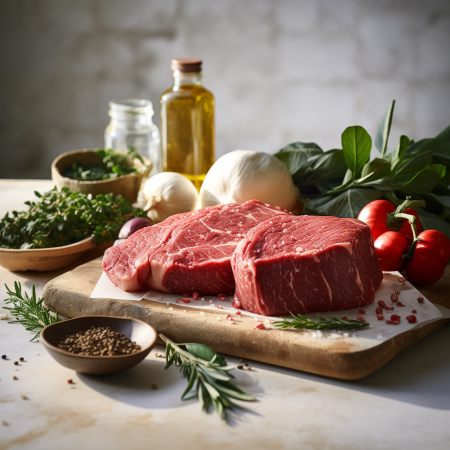
Lactoferrin – Recipe for Immunity?
Natural ways to strengthen our immunity has recently become a really popular topic. A healthy diet, physical activity, sleep, and appropriate supplementation are the key to health. I wrote about it HERE. Lactoferrin supplementation is also becoming popular due to its broad spectrum of action in the fight against infections. It is believed to have antibacterial, antifungal, antiviral, immunomodulatory, anticancer, and many other properties. So what is lactoferrin, where does it come from and what does it do? Is it really a panacea for all evil? Read on to find all the answers you need 😉
What is Lactoferrin?
Lactoferrin is called a “multipotent protein” and is additionally considered the most valuable protein found in human milk. First of all, it should be emphasized that it is naturally secreted by our body. It is found mainly in colostrum (the mother’s first milk after giving birth to a baby) and milk. It is found in lower concentrations in saliva, tears, semen, mucus, i.e. wherever antimicrobial defense needs to be quickly provided. To compare the content, there is approximately seven times more lactoferrin in colostrum than in milk later in lactation!
Where Does the Name Lactoferrin Come From?
The name ‘lactoferrin’ is complex, it comes from the Latin language, where ‘lac’ means milk/’lacto’ – milky, because the protein was first isolated from milk. “Ferine” comes from the Latin ferrum – iron, because it has a high affinity for iron.
Lactoferrin Safety
The variety of functions of lactoferrin is extremely interesting. At the same time, it is non-toxic, which means that it is a safe protein and can be used as a supplement in infants from the first day of life. Therefore, lactoferrin, which is supplied with mother’s milk, is a key line of defense for the newborn’s body against pathogenic microorganisms.
Properties and Functions of Lactoferrin
Intensive support for the immune system
Lactoferrin is a protein that is responsible for regulating the body’s immune response. Therefore, it is considered to have an immunostimulating role, largely supporting the functioning of the immune system. One of its mechanisms of action is the capture and binding of iron in the body. Thus, it hinders bacteria’s access to metal ions, which are crucial for their growth and development. This protein blocks pathogenic microorganisms from reproducing and additionally has a bactericidal effect. Sounds great! That is why lactoferrin is considered to have immunity-stimulating effects.
It’s Also the Fight Against Viruses!
Lactoferrin has a similar inhibitory effect on viruses – it inhibits the ability of pathogens to attach, which is why viruses do not penetrate cells. The effect that prevents the multiplication of bacteria and viruses refers to the beginning of the infection. What if we already have a cold or feel the effects of a virus? Don’t worry, research shows that lactoferrin has a stimulating effect on the immune system already at the stage of active infection. Thus, the immune response is faster and more effective. In short, it is a great way to fight the disease because viruses/bacteria are simply eliminated from the body faster.
Impact on Iron Metabolism
Lactoferrin takes part in many iron metabolism processes – it regulates its absorption in the intestine and transports it to storage tissues.
As I have already mentioned, this protein can strongly bind iron ions. This determines its participation in many iron metabolisms in the body. This is especially significant in the early period of life, I mean the neonatal period. At this stage, lactoferrin has a protective effect and affects the baby’s development. It has been confirmed in clinical trials that lactoferrin has a fantastic effect on the absorption of iron from the diet. Moreover, it adapts it to the current needs of the body – facilitating (in the case of deficiency) or limiting (in the case of excess iron in the body) its absorption.
This effect of lactoferrin obviously also applies to adults. Current research shows that supplementation with appropriate doses of lactoferrin may be effective in the treatment of iron deficiency anemia. This condition is often noticeable in pregnant women, therefore, due to the lack of lactoferrin toxicity, supplementation seems to be a great solution.
Lactoferrin Puts your Microbiome in Order
As we know, antibiotic therapy disrupts the intestinal microbiota, causing it to enter a state of dysbiosis, thereby lowering the body’s immunity. Fortunately, the influence of lactoferrin on the regulation of intestinal microbiota is increasingly being studied. Thus, in situations of overgrowth of undesirable intestinal bacteria caused by taking antibiotics, this protein has an impact on restoring the level of some bacteria and (very important for our immunity) increasing the tightness of the intestinal epithelium.
Is it a Good Idea to Supplement Lactoferrin?
The upcoming autumn and winter period will require us to take special care of our immunity. Although there are many other natural ways to support the fight against bacteria and viruses, even when maintaining a healthy, balanced diet, lactoferrin is increasingly recommended as a permanent supplement, especially for people with weakened immunity, children and the elderly.
The Use of Lactoferrin
In addition to the dietary supplements mentioned above, lactoferrin is used as an additive to functional foods and in hygiene products that are already available on our market. Research on the protein is constantly being conducted because it has enormous potential and will undoubtedly be used in the prevention and treatment of many diseases, e.g. inflammatory diseases.
Summary
Lactoferrin is a multifunctional protein found in many human organs and cells, as well as in secretions such as tears and saliva. It is found in the highest concentration in colostrum, the first milk of mammals, so it is particularly important in the neonatal period. Current research shows that it has enormous potential to act in boosting immunity. Moreover, it regulates the level of iron in the body and has a very positive effect on the microbiota, especially after a period of antibiotic therapy. I can definitely recommend using lactoferrin as a natural way to improve your immunity. Of course, we still have to remember about a healthy diet as the basis, and add lactoferrin to the list of must-have products in the fight against infections today!
Bibliography:
- Baker E.N., Baker H.M. A Structural Framework for Understanding the Multifunctional Character Of Lactoferrin, Biochimie. 2009, 91 (1), 3–10.
- Bellés A., Aguirre-Ramírez D., Abad I., Parras-Moltó M., Sánchez L., Grasa L. Lactoferrin modulates gut microbiota and Toll-like receptors (TLRs) in mice with dysbiosis induced by antibiotics. Food Funct. 2022 May 23;13(10), 5854-5869.
- Gajda-Morszewski P., Śpiewak K. Laktoferyna – białko multipotencjalne. Zeszyty Naukowe Towarzystwa Doktorantów UJ Nauki Ścisłe, (10)1/2015), 177-188.
- González-Chávez S.A., Arévalo-Gallegos S., Quintín R.C. Lactoferrin: structure, function and applications. International Journal of Antimicrobial Agents. Volume 33, Issue 4, April 2009, Pages 301.e1-301.e8.
- June D., Konstantin A.T., Lumbanradja L.A., Aryani A., Hengky A. Lactoferrin as treatment for iron-deficiency anemia in children: a systematic review. Turk J Pediatr. 2023;65(4):543-554.
- Kell D.B., Heyden E.L., Pretorius E. The Biology of Lactoferrin, an Iron-Binding Protein That Can Help Defend Against Viruses and Bacteria. Front Immunol. 2020 May 28;11:1221.









Comments No Comments
Join the discussion…